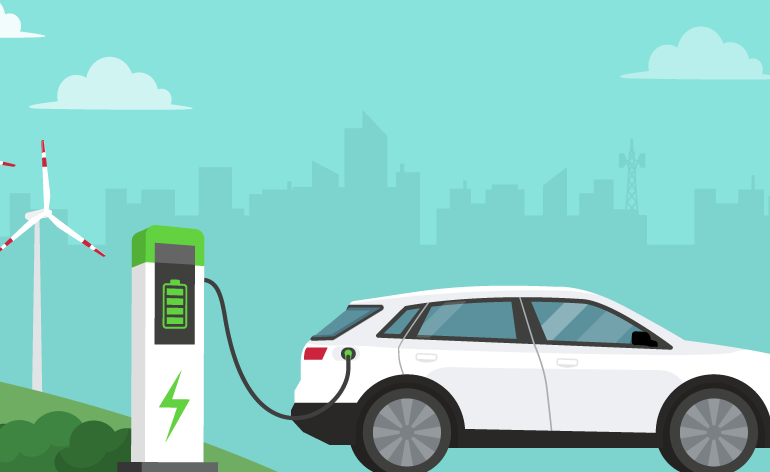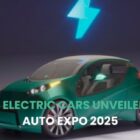Will investing in EV infrastructure encourage more people to go electric?
The proliferation of EVs is altering the transportation landscape and the way people commute. Electric cars (EVs) have several advantages over their gasoline-powered counterparts, but they need new infrastructure to fully realize those benefits. The electric vehicle (EV) charging stations, electrical grids, and other systems that keep EVs operational make up the EV infrastructure.
Why Electric Vehicle Infrastructure Is Crucial
The range and practicality of EVs are two aspects greatly influenced by the infrastructure supporting them. Electric vehicles (EVs) have to be changed often to function, unlike gas-powered cars. If there isn’t a sufficient number of charging stations, people who possess electric cars may be unable to go far or may have to spend more time than required being charged. For many would-be purchasers of electric vehicles, this is a substantial impediment to purchase, especially when they can access, say, an ev charging station in Lajpat Nagar.
Lowering GHG emissions
To lower GHG emissions and enhance air quality, EV infrastructure is also essential. The rising popularity of electric vehicles is expected to boost the nation’s need for power.
Present-Day Electric Vehicle Infrastructure
The infrastructure for electric vehicles is still in its infancy at now. It might be challenging for EV owners living in rural locations to locate accessible charging choices since charging infrastructure is often concentrated in metropolitan areas.
Heavy investments in EV infrastructure are being made by both governments and commercial firms to meet these issues. Electric vehicle (EV) charging infrastructure is being developed by both public and private entities, including Tesla and ChargePoint.
EV grid integration
Electric vehicle (EV) grid integration is another interesting area of research. Extra renewable energy may be stored in EVs and sent back into the grid using vehicle-to-grid (V2G) technology during peak demand hours. This is beneficial for the grid’s stability and also generates income for EV owners.
The growing popularity of EV
More and more individuals are making the switch to EVs because they understand the importance of environmentally friendly transportation. Nonetheless, various obstacles continue to impede the mainstream adoption of EVs, including range anxiety, high initial prices, and a lack of charging infrastructure. Governments and businesses alike are investing in EV infrastructure, such as charging stations, to solve these concerns and get more people to switch to EVs.
The Impact of Electric Vehicle Infrastructure
Like petrol stations are necessary for the extensive use of conventional automobiles, EV infrastructure is required for the general use of electric vehicles. For example, charging at a public ev charging station in Lajpat Nagar is an easy, accessible, and dependable option for EV drivers. Another major issue of prospective EV customers is range anxiety, which is mitigated by a well-developed charging infrastructure. To suffer from range anxiety is to worry about being unable to complete a journey due to a lack of power. The public’s trust in long-distance travel is bolstered by the availability of charging infrastructure.
Building a Better Future for Electric Vehicles
To get more people to switch to electric vehicles, it is essential to invest in EV infrastructure. In response, numerous public and private organizations have begun funding charging infrastructure. For instance, by 2030, the United States government plans to have installed half a million charging stations nationwide. In a similar vein, numerous car companies in Europe have collaborated to install a system of fast-charging stations to facilitate cross-country driving. By increasing the size of the charging infrastructure, these expenditures benefit both current EV owners and those considering purchasing an electric vehicle.
Promoting Electric Vehicle Use
In addition to helping existing EV owners, expanding the EV infrastructure will attract new EV buyers. As was said before, one of the major worries of would-be EV purchasers is range anxiety. Governments and businesses may alleviate this concern by building out a charging infrastructure to support EVs. Moreover, investments in EV infrastructure may assist with addressing still another major worry, namely, steep entry prices. Government incentives, such as tax credits and subsidies, may lower the out-of-pocket cost of purchasing an EV and make them accessible to a wider demographic.
Private Organizations’ Part to Play
For the benefit of EV drivers, businesses are installing charging stations in high-traffic areas including airports, hotels, and major thoroughfares. The advantages of electric transportation may be shown by businesses that convert to EV fleets, which can assist increase EV adoption.
The Future of Electric Vehicle Infrastructure
The need for charging stations and other infrastructure designed for electric vehicles will expand in tandem with the number of EVs on the road. But this may also be seen as a chance to rethink our approach to transportation and energy in general. Smart charging systems that can dynamically modify charging rates in response to the availability of renewable energy sources are one possible option.




